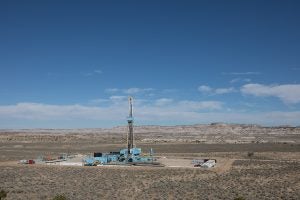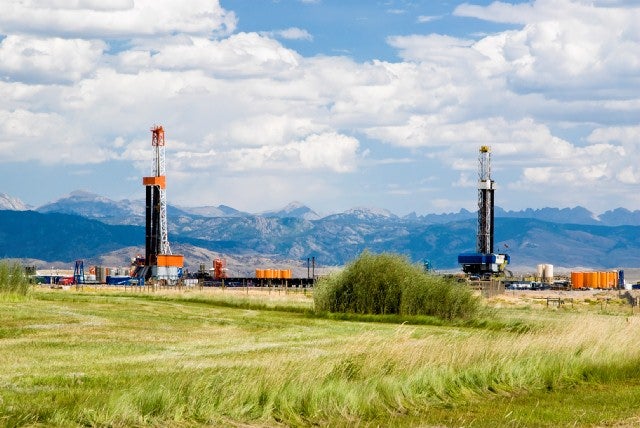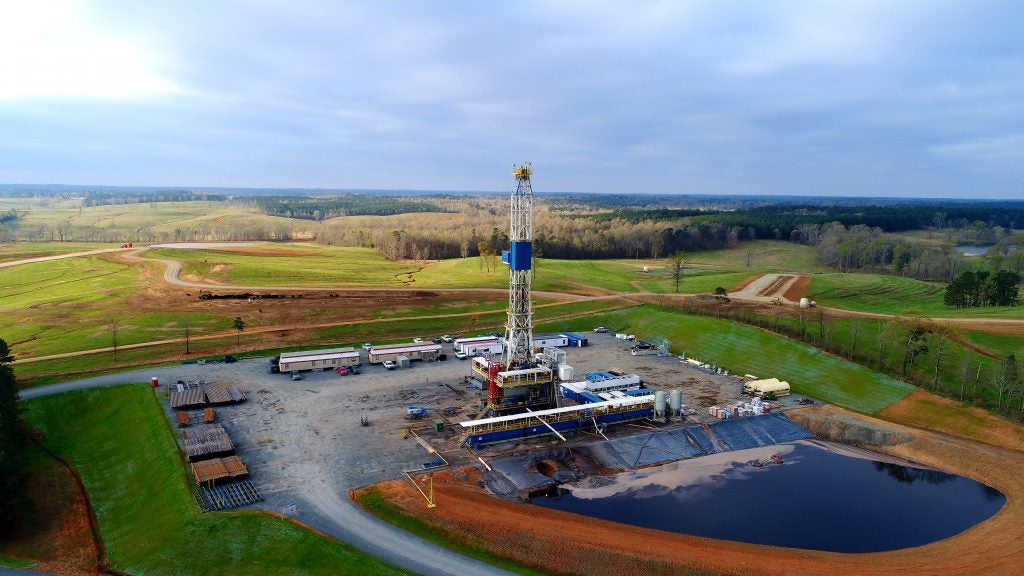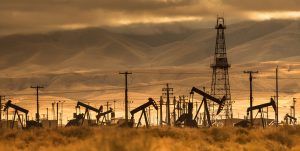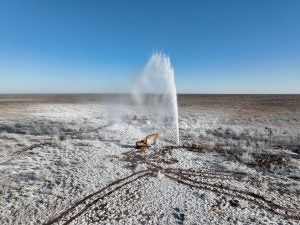 Early this January, a geyser in West Texas started spewing tens of thousands of barrels of salty water a hundred feet into the air and coating the nearby land with salt deposits. It took about 10 days to discover the culprit was an old, dry oil well plugged in 1957 by Gulf Oil. By the next day, the Texas Railroad Commission had turned over the blowout and remediation to Chevron (who acquired Gulf Oil in the 1980s), who assumed full responsibility immediately and without question.
Early this January, a geyser in West Texas started spewing tens of thousands of barrels of salty water a hundred feet into the air and coating the nearby land with salt deposits. It took about 10 days to discover the culprit was an old, dry oil well plugged in 1957 by Gulf Oil. By the next day, the Texas Railroad Commission had turned over the blowout and remediation to Chevron (who acquired Gulf Oil in the 1980s), who assumed full responsibility immediately and without question.
This is a normal cost of doing business in the oilfield in Texas and elsewhere — you break it, you pay for it.
Traditional regulatory and legal principles around liability are designed to hold operators accountable when they or those they are responsible for fail to live up to their responsibilities. Such rules encourage operators to do as good and thorough a job as technically feasible.
However, some states are weakening these rules for operators of carbon sequestration and storage projects. If this quiet trend continues, the integrity of these projects, their climate benefits and their public acceptance could be significantly threatened.










